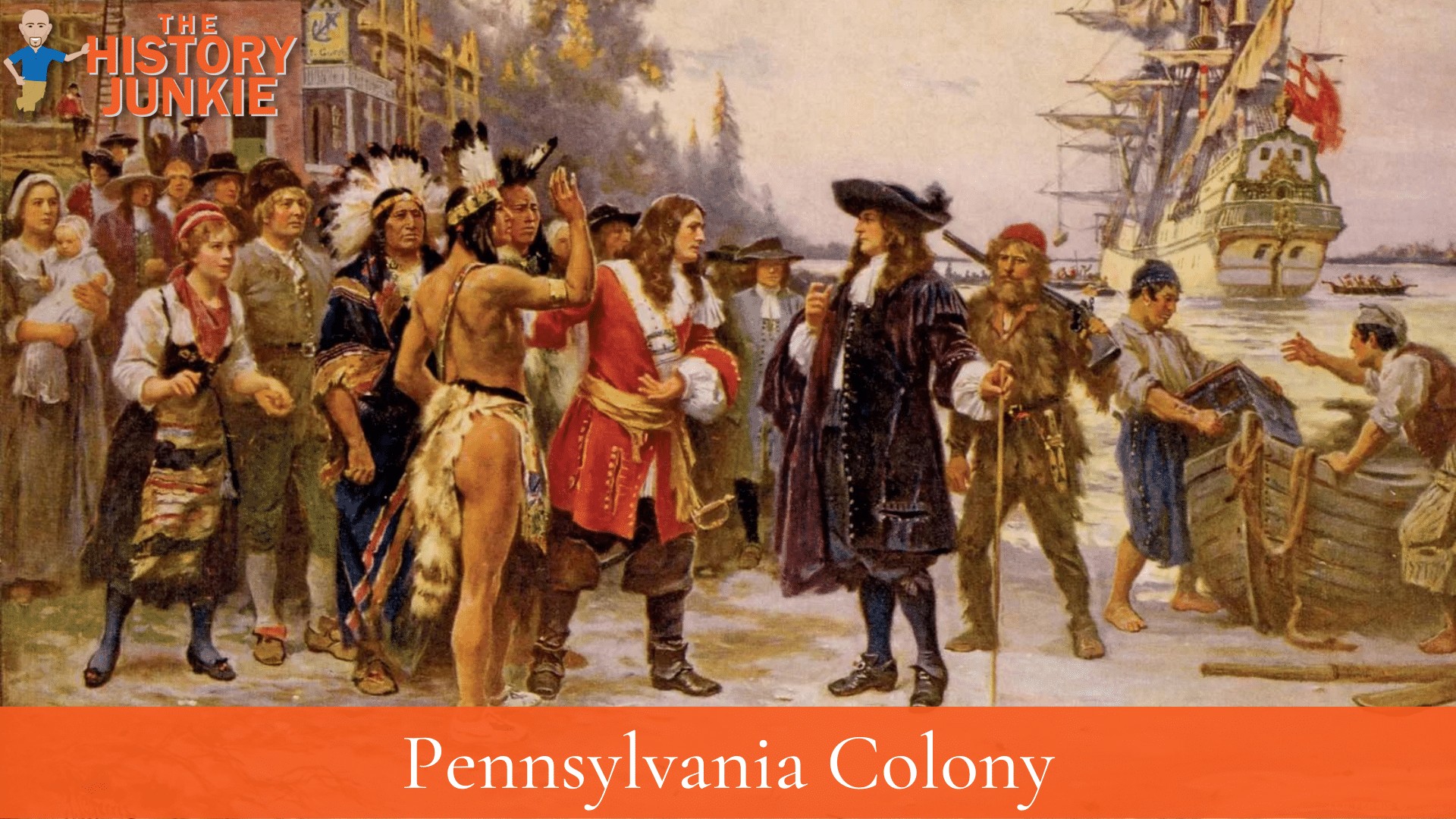
Pennsylvania Colony was founded by William Penn and would become the heart of the American Revolutionary War. It would be at Independence Hall in Philadelphia, where the Declaration of Independence was signed by our founding fathers and a new nation was formed.
Pennsylvania was an influential colony throughout Colonial America and would become an economic powerhouse. Its position in the middle colonies allowed for many excellent ports that would bring immigrants over from Europe.
Government
The Colonial American government, established in 1683 by William Penn's Frame of Government, consisted of an appointed Governor, the proprietor, a 72-member Provincial Council, and a larger General Assembly. The General Assembly was the largest and most representative branch of government but did not have much power.
Succeeding Frames of Government were produced in 1683, 1696, and 1701. The fourth Frame remained in effect until the American Revolution.
At that time, the Provincial Assembly was deemed too moderate by the revolutionaries, who ignored the Assembly and held a convention that produced the Constitution of 1776 for the newly established Commonwealth of Pennsylvania, creating a new General Assembly in the process.
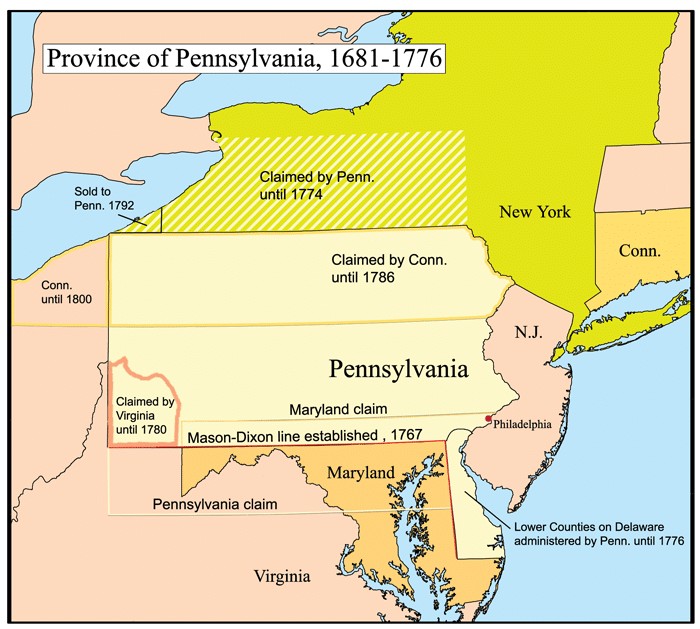
Religious Freedom and Growth
Pennsylvania Colony was not the first colony to offer religious freedom (Rhode Island Colony was the first), but it certainly played a role in its growth. William Penn allowed for religious freedom, fair treatment of Indians, low taxes, and no debt.
These factors created consistent growth. Immigrants flocked from Europe to the ports of Philadelphia, Lancaster, and others. An ancestor of mine came over from Germany during this period.
Due to their low taxes, the economy boomed, and William Penn encouraged the growth of Philadelphia and personally oversaw its development.
Due to Pennsylvania's Quaker roots, the colony never had a military and would not get involved in the Indian wars that so many New England Colonies would get involved in.
This led to much economic growth and good faith with the Lenape Indians. Penn made fair deals with the natives to expand the colony, and while there still remained a few Indian skirmishes on the border, they did not have the same amount as other colonies.
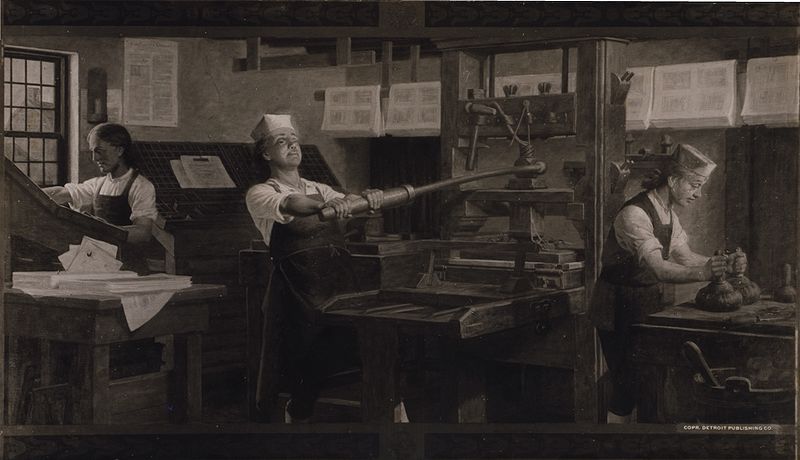
A young Benjamin Franklin arrived in Philadelphia and quickly realized how different the economy was when compared to his home, Boston, Massachusetts Bay Colony.
The same amount of money that would buy him a loaf of bread in Boston would buy him multiple in Pennsylvania. This was due to no debt and low inflation of the currency.
Due to Pennsylvania's freedom, Franklin became the most successful printer in the colonies and the most influential. He would have been unable to become the great success he was if he had stayed in Puritan Boston.
American Revolutionary War
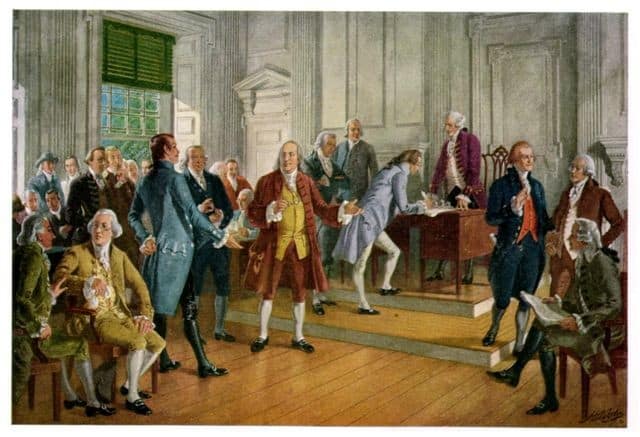
By the time of the American Revolutionary War, Pennsylvania had established itself as the most industrious colony in the New World.
The delegates to the Continental Congress met in Philadelphia to discuss freedom, and it was here that the debate for independence would be argued. Pennsylvania played an influential role on both sides of the argument.
While John Adams from Massachusetts railed against the British and argued for independence, it was John Dickinson from Pennsylvania who argued against the idea.
John Dickinson became the most influential man at the First Continental Congress and pushed for negotiation rather than war with Great Britain.
During the Second Continental Congress, John Dickinson's influence began to fade, and more delegates sided with John Adams, including fellow Pennsylvania delegates: Benjamin Franklin, Benjamin Rush, Robert Morris, John Morton, George Clymer, James Smith, George Taylor, James Wilson, and George Ross.
During the American Revolutionary War, Pennsylvania became an important piece of British strategy. General William Howe captured the city of Philadelphia after the Battle of Brandywine, and after the British left Philadelphia, the Continental Congress made General Benedict Arnold its governor. It would be here that the seeds would be planted for Arnold's betrayal.
Legacy
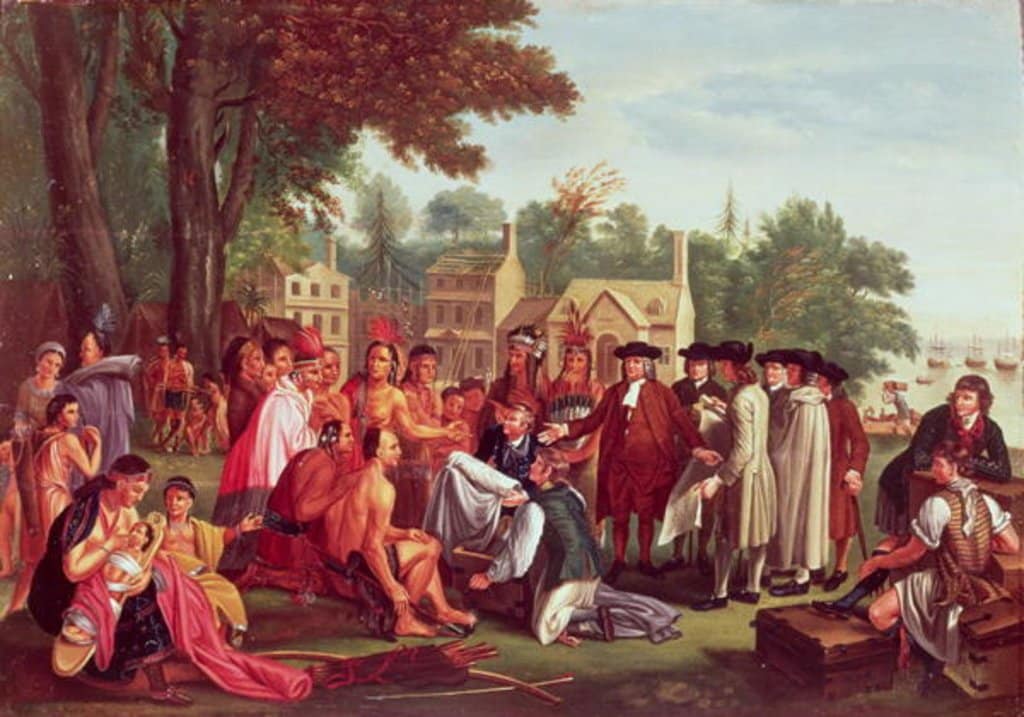
The legacy of Pennsylvania is a stark contrast to what it has become today. William Penn founded Philadelphia as the "city of brotherly love," but now has one of the highest crime rates in the country. It is unfortunate what has become of the once-great city, but some things never change.
Pennsylvania will always bear one of the great legacies of any state in the union. They were the first to negotiate fairly with the Native Americans, allowed more religious freedom than any colony, and became the hub of information.
They supplied many troops to the American Revolution and would go on to play a key role during the Civil War at the Battle of Gettysburg.
Online Resources
- Wikipedia - Province of Pennsylvania
- Official Website of the State of Pennsylvania
- Religious Freedom in Colonial Pennsylvania
- The Pennsylvania Gazette
- The History Junkie's Guide to the 13 Original Colonies
- The History Junkie's Guide to the American Revolutionary War
- The History Junkie's Guide to the French and Indian War
